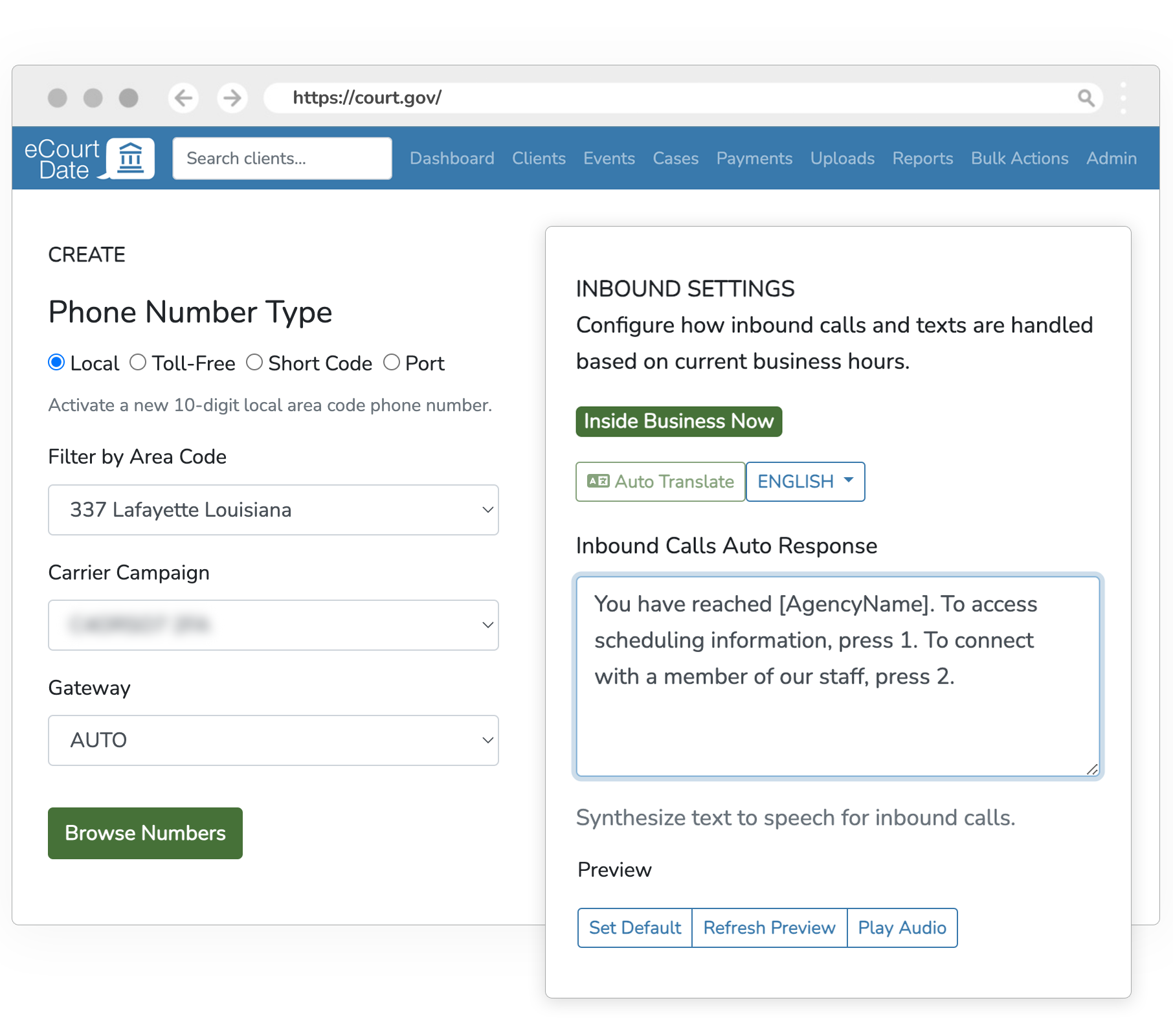Accessibility for All Users
WCAG, ADA, and Section 508 Compliance
View Accessibility Conformance ReportAn Ongoing Commitment
Our commitment to User Accessibility is ongoing. We promise to make every effort to ensure all new content and features conform to WCAG, ADA, Section 508, and their periodic updates.
We conduct ongoing accessibility testing to continually improve our digital platforms and ensure they remain inclusive and user-friendly for all individuals with disabilities.
How We Are Making a Difference
Multichannel
Ensure there are many ways users can receive messages (text, email, voice, and chat) that best suit their individual needs.
Speech to Text
Deaf and hard-of-hearing users can convert any audio message to text with STT (Speech to Text).
Text to Speech
Blind and visually impaired users can convert any written message to speech with TTS (Text to Speech).
Multilingual Support
Enable multilingual translations to ensure the public is reached in their preferred language, fostering better communication and access to justice.
Multimedia Content
Upload multimedia content with alternative text for text readers directly through the web portals.
Accessibility Compliance
We implement accessibility features, including text alternatives, keyboard accessibility, accessible forms, semantic HTML, sufficient contrast for ease of reading, and more.
Accessibility Compliance Standards
If you are experiencing an accessibility issue or you have specific questions or concerns about the accessibility of any page on our site or in our program, please send your questions and comments to help@ecourtdate.com.
WCAG 2.2
We are committed to making our content Perceivable, Operable, Understandable, and Robust in following the Web Content Accessibility Guidelines (WCAG).
The practices outlined in the WCAG increase inclusivity by aiding people with visual and hearing impairments, motor disabilities, cognitive and learning disabilities, and other temporary or permanent impairments.
ADA Title II & III
The Americans with Disabilities Act (ADA) prohibits discrimination based on disability. Title II and Title III are key sections of the ADA.
Title II applies to all activities of state and local governments.
Title III applies to private entities that own, lease, lease to, or operate places of public accommodation.
Section 508
Section 508 of the Rehabilitation Act mandates that all electronic and information technology (EIT) developed, procured, maintained, or used by federal agencies be accessible to people with disabilities.
Section 508 is focused on Functionality, Industry Alignment, Content Accessibility, Synchronized Tools and Tech, and the Expanded Marketplace of accessibility standards.
Telephone Relay Service
Our Telephone Relay Service (TRS) allows individuals with hearing or speech disabilities to communicate with standard telephone users through a third-party communications assistant.
